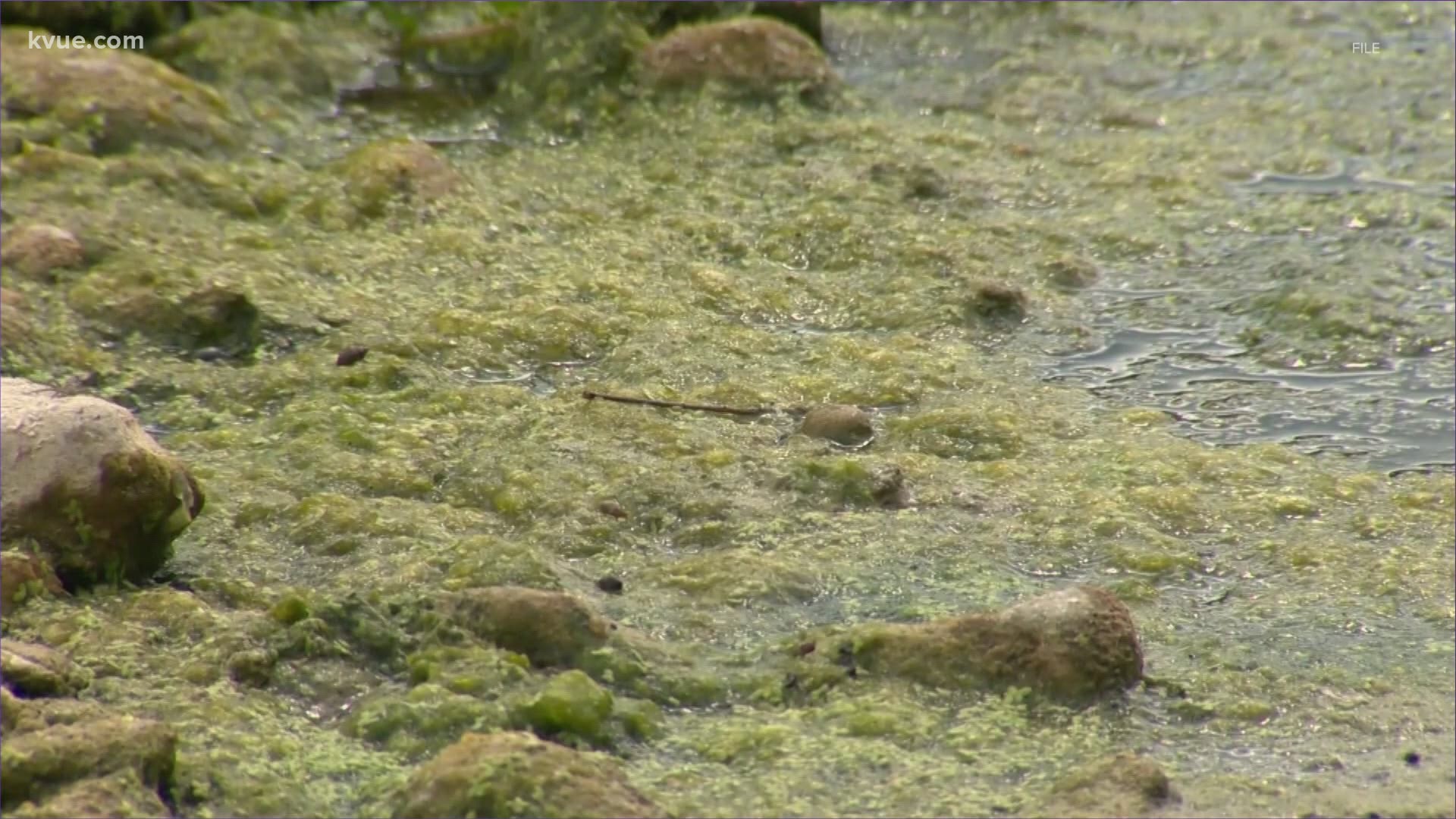AUSTIN, Texas — The Texas House approved a bill Tuesday that would prevent new wastewater discharge permits along stream segments across the state that are considered “pristine.”
The bill HB 4146, authored by Rep. Tracy King (D-Batesville), passed by a vote of 82-61.
“In cases where you have this pristine water — where you can look down and read the serial number on your water skier or inner-tube or see the dirt under your toenails — a wastewater plant just doesn’t fit,” said John Byrum, executive director of the Nueces River Authority. “We want to try and keep those streams pristine. We want our kids and grandkids to be able to enjoy them the same way we did.”
According to the bill's text, streams that fall under the "pristine" category have been shown to have phosphorous levels below 0.06 milligrams per liter in 90% of all water quality samples taken in the past decade.
The KVUE Defenders have extensively covered Central Texas' wastewater problems. For years, the KVUE Defenders have shown the growing number of cities dumping treated wastewater into the rivers and lakes where we get our drinking water and enjoy with our families.
RELATED:
The KVUE Defenders reported in November of 2020 that there is a history of violations with these permits issued from the TCEQ. KVUE reported the Liberty Hill wastewater treatment plant has permission from the state to dump 1.2 million gallons of treated wastewater discharge into the San Gabriel River every day. Yet, according to EPA records, it has exceeded permitted discharge limits 98 times since 2015, 15 times this year.
And despite more than 50 permit violations cited by the Texas Commission on Environmental Quality (TCEQ), the state now allows Liberty Hill to expand operations to dump 4 million gallons per day.
In a statement from November's reporting, the TCEQ told KVUE:
"Under the Texas Pollutant Discharge Elimination System (TPDES) program, Texas is authorized to issue permits to facilities discharging pollutants into the state's waterways and to limit the amount of pollutants discharged. The City of Liberty Hill has been issued a TPDES permit which authorizes it to discharge in compliance with its TPDES permit. The TPDES permit requires each permitted facility to routinely monitor its discharges and report the results to the TCEQ using a Discharge Monitoring Report. Each permittee monitors the levels and types of pollutants discharged and other defined parameters (such as flow) and reports them on a defined schedule to the TCEQ. The DMR details the results of facilities’ self-monitoring activities. The DMR data is captured in the EPA’s Integrated Compliance Information System (ICIS). The DMR data is used to determine facility compliance with the issued permits. ICIS performs an automated compliance check looking at discharge parameters, as well as reporting requirements (such as the monthly submittal of DMRs and annual sludge reports). ICIS compares the actual pollutant discharge levels, to the levels allowed by the facility's permit. If a violation is identified, ICIS generates a report that flags the facility and the noted noncompliance. TCEQ staff monitor this data and when a violation is documented, the alleged violator (respondent) may be sent either a Notice of Violation (NOV), or a Notice of Enforcement (NOE), depending on the severity of the violation in accordance with the TCEQ’s Enforcement Initiation Criteria. In either case, the respondent would be required to undertake all corrective action necessary to resolve the violation.
TCEQ has initiated enforcement against the city (Liberty Hill) for permitted effluent violations and for violations documented during on-site investigations. On Aug. 22, 2018, the TCEQ issued Agreed Order Docket No. 2017-0141-MWD-E. The city complied with the terms of this order in August 2019, after returning to compliance with effluent violations. On June 16, 2020, TCEQ issued Agreed Order Docket No. 2018-1024-MLM-E, which is currently being monitored for compliance. If the city fails to comply with the terms of this order, the commission may initiate additional enforcement remedies including pursuing an administrative order for violation of the existing order or referral of the case to the Office of the Attorney General for enforcement through the courts, including potential civil penalties and injunctive relief."
Residents in the Hill Country have fought to keep treated wastewater out of the waterways, even suing local municipalities.
Rep. King said his bill is designed to preserve "pristine clarity" of rivers and streams that are "crystal clear," according to KVUE's media partners at the Austin American Statesman. The Statesman reported that King said one way to help this effort is to prevent the TCEQ from issuing discharge permits along those stream segments considered pristine in the bill.
There is still opposition to HB 4146, however.
Scott Norman, executive director of the Texas Association of Builders, told the Statesman that limiting the bill to prohibiting domestic wastewater discharge permits is unfair.
“Doing a blanket prohibition across the board is going to have ramifications on housing in certain areas of the state,” Norman said. “Rep. King and the advocates behind the bill, their goal is worthwhile and I understand it. But ... we think there may be a better way to environmentally regulate this than a blanket prohibition.”
The Senate companion bill, SB 1747, remains in committee. Read the Statesman's full report on HB 4146 here.
PEOPLE ARE ALSO READING:

